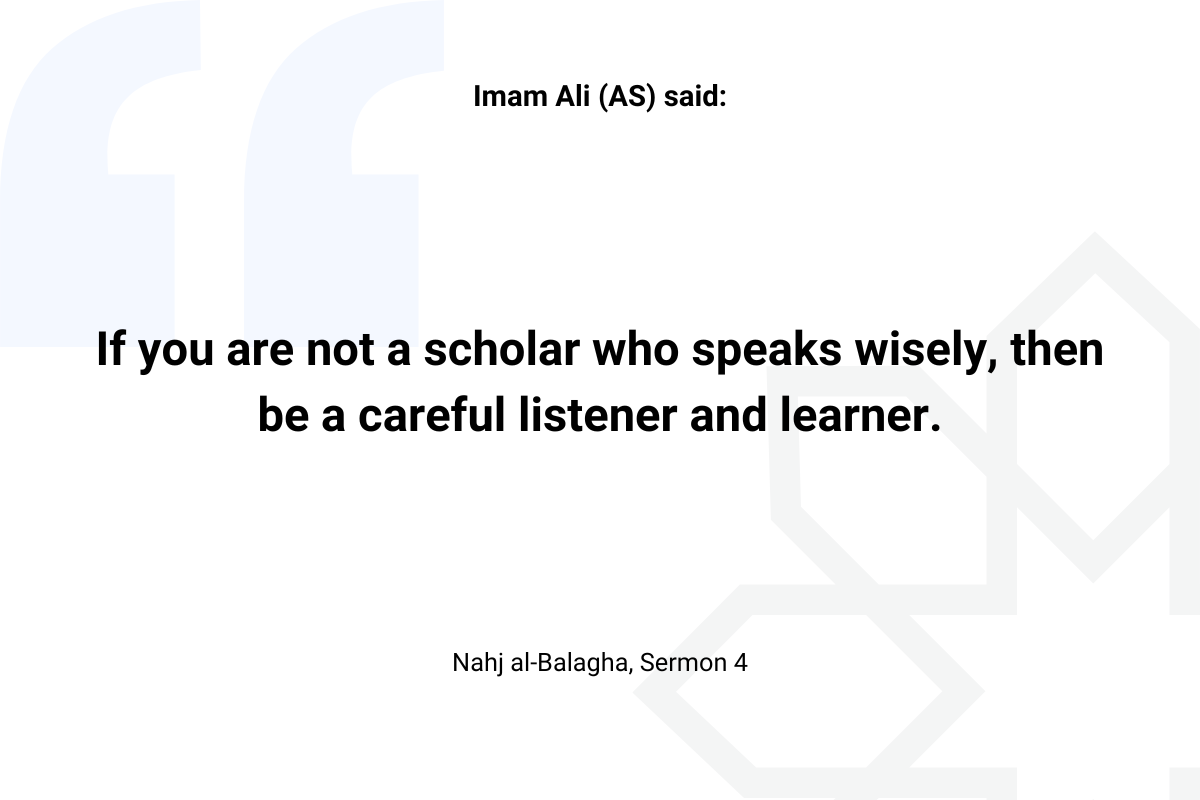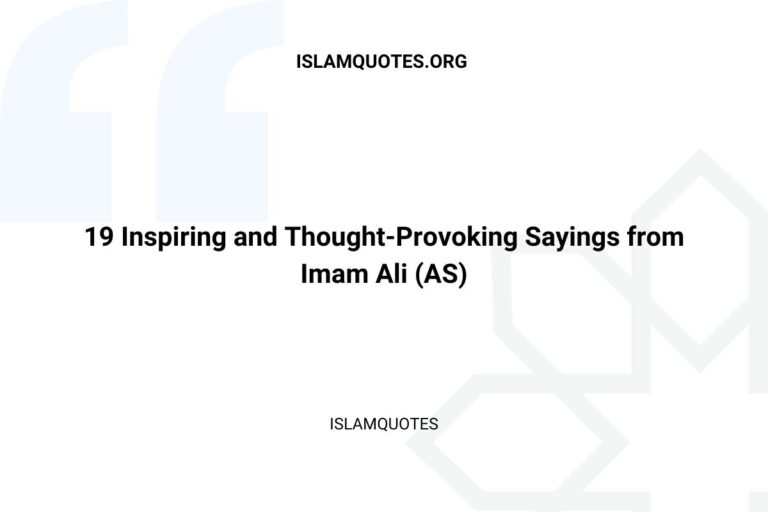Imam Ali (AS) said:
If you are not a scholar who speaks wisely, then be a careful listener and learner.
Nahj al-Balagha, Sermon 4
Embracing Wisdom Through Listening
Introduction
In a world overflowing with information, the ability to discern and absorb wisdom is a priceless skill. This profound insight is highlighted in a hadith by Imam Ali (AS), where he emphasizes the importance of being a learned speaker or an attentive listener. This teaching from Nahj al-Balagha offers a timeless reminder of the value of knowledge and the virtue of listening, both of which are crucial for personal and communal growth.
The Dual Paths to Wisdom: Speaking and Listening
The Role of Scholars in Islam
Islam places a significant emphasis on the pursuit of knowledge. Scholars, or ‘ulama’, hold a revered position as they disseminate Islamic teachings and wisdom. Their role is pivotal in guiding the community, interpreting religious texts, and providing counsel. The ability to speak wisely and impart knowledge is a responsibility that scholars undertake to illuminate the path for others.
The Virtue of Listening in Islam
While being a knowledgeable speaker is commendable, Imam Ali (AS) highlights an equally important aspect—being a mindful listener. Listening with intention and humility allows one to absorb and reflect upon the wisdom shared by others. This practice not only fosters personal growth but also builds a foundation of respect and understanding within the community. The Quran advises, “So give good tidings to My servants who listen to speech and follow the best of it” (Surah Az-Zumar, 39:17-18), emphasizing the merit of being attentive listeners.
Practical Implications of the Hadith
Fostering a Culture of Learning
Incorporating this hadith into daily life encourages a culture of continuous learning. Whether through attending lectures, participating in study circles, or engaging with scholarly works, Muslims are encouraged to seek knowledge actively. This pursuit should be complemented by an openness to listening and learning from diverse sources, fostering a well-rounded understanding of Islamic principles and worldly matters.
Enhancing Communication Skills
The hadith also underscores the importance of effective communication. Scholars and speakers should strive to convey their knowledge clearly and thoughtfully, ensuring their message is accessible and impactful. Conversely, listeners should practice active listening, which involves fully concentrating, understanding, and responding thoughtfully to what is being said. This dynamic exchange enhances mutual respect and facilitates meaningful dialogue.
Broader Implications for Community and Society
Building Stronger Communities
When individuals embrace the dual roles of speaking wisely and listening attentively, communities benefit from enriched interactions and shared wisdom. This balance fosters a supportive environment where knowledge is respected and disseminated effectively. It also encourages a collective pursuit of truth and understanding, strengthening communal bonds and promoting social cohesion.
Promoting Global Understanding
On a global scale, the principles of speaking wisely and listening carefully can bridge cultural and ideological divides. By valuing knowledge and prioritizing understanding, societies can engage in constructive dialogues that address global challenges. This approach aligns with the Islamic teaching of pursuing peace and justice through informed and respectful interactions.
Conclusion
The hadith from Nahj al-Balagha presents a profound lesson: the pursuit of knowledge and the practice of attentive listening are both essential for personal and communal enrichment. By embodying these principles, individuals can contribute to a culture of wisdom and understanding, fostering harmony and progress within their communities and beyond. The teachings of Imam Ali (AS) offer timeless guidance for achieving a balanced and enlightened life.
For more inspirational Islamic quotes, including daily hadiths and motivational sayings, explore our comprehensive collection.








